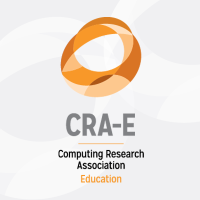CRA-E Welcomes Three New Board Members
By the CRA-E Committee
The CRA Education Committee (CRA-E) is excited to announce that Renee Bryce, Dorian Arnold, and Stacy Branham joined as board members.
The CRA-E board would also like to recognize and extend their gratitude to Emeritus member Amy Ko, who recently completed her service on the board. Amy was instrumental in supporting the committee’s mission, and her service was greatly appreciated. The CRA-E board is also thankful for former Graduate Fellow Nadia Ady, who received her PhD from the University of Alberta in July. During her term, Nadia supported the development of the monthly Undergraduate Research Highlights and contributed to the redesign of the Conquer website.
 Renee Bryce
Renee Bryce
Professor, Computer Science and Engineering, North Texas University
Renee Bryce is a Professor at University of North Texas. She earned her Ph.D. in Computer Science from Arizona State University in 2006. She earned her B.S. and M.S. degrees from Rensselaer Polytechnic Institute. Her research areas interests include Software Engineering, with emphasis on software testing and usability testing and Computer Science Education, with emphasis on software testing education.
She has served as Primary Investigator on funding from the National Science Foundation, National Institute of Standards and Technology, U.S. Forest Service, Lawrence Livermore National Lab, and more. Over the past decade, she’s obtained more than $4 million in total research funding. Dr. Bryce is a member of the U.S. National Institute of Standards and Technology (NIST) Automated Combinatorial Testing for Software (ACTS) group.
Dr. Bryce is the recipient of a 2021 UNT Distinguished Teaching Professorship Award, 2018 DFW Tech Titan Award, and 2015 NCWIT Undergraduate Research Mentor Award. She is also a recipient of the 2006 Arizona State Commission on the Status of Women award for her “achievements and contributions towards advancing the status of women”. One of her students received the “Best M.S. Thesis” in the Department of Computer Science at Utah State University and one received the “Best Honors Thesis” at Utah State University (one award for the entire university).
 Dorian Arnold
Dorian Arnold
Associate Professor of Computer Science at Emory University
Dorian Arnold is a tenured, associate professor of Computer Science at Emory University. From 2009-2017 he was an assistant and associate professor at The University of New Mexico. He studies distributed systems, fault-tolerance, online (streaming) data analysis, and software tools for high-performance computing environments. Arnold is interested in the performance, scalability and reliability issues of extreme scale environments comprising many thousands or even millions of components. He has 60+ peer-reviewed publications with 1800+ citations. His research projects have won two Top 100 R&D awards. In 2017, he was named an ACM Distinguished Speaker.
Arnold has held leadership roles at major HPC venues including chair of many technical components and steering committee member for the SC Conference and as an Associate Editor of the IEEE Transactions on Parallel and Distributed Systems. He is committed to diversity and inclusion and served as General Chair for the 2017 ACM Richard Tapia Celebration of Diversity and the 2016 CRA HPC Pipeline Workshop. Dorian has also been a speaker at several CRA-WP events throughout the years.
Arnold earned Ph.D. and M.S. degrees in Computer Science from the Universities of Wisconsin and Tennessee, respectively. He earned a B.S. in Math and Computer Science from Regis University (Denver, CO) and his A.S. in Physics, Chemistry and Math from St. John’s College (Belize).
 Stacy Branham
Stacy Branham
Associate Professor of Informatics, University of California, Irvine
Stacy Branham’s research investigates how technologies operate in social settings where one or more people is disabled, yielding actionable design guidance and proof of concept prototypes. Her work has been recognized by best paper awards at top research conferences and has been supported by over $15 million from funding entities including Jacobs Foundation, Toyota, Intel, and the NSF. In 2021, she received the NSF CAREER Award and was named one of the “Brilliant 10” rising STEM researchers by Popular Science. She earned her Ph.D. in 2014 and her B.S. in 2007, both from Virginia Tech’s Department of Computer Science.








